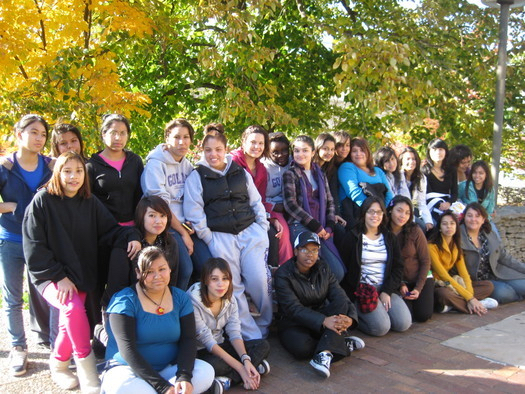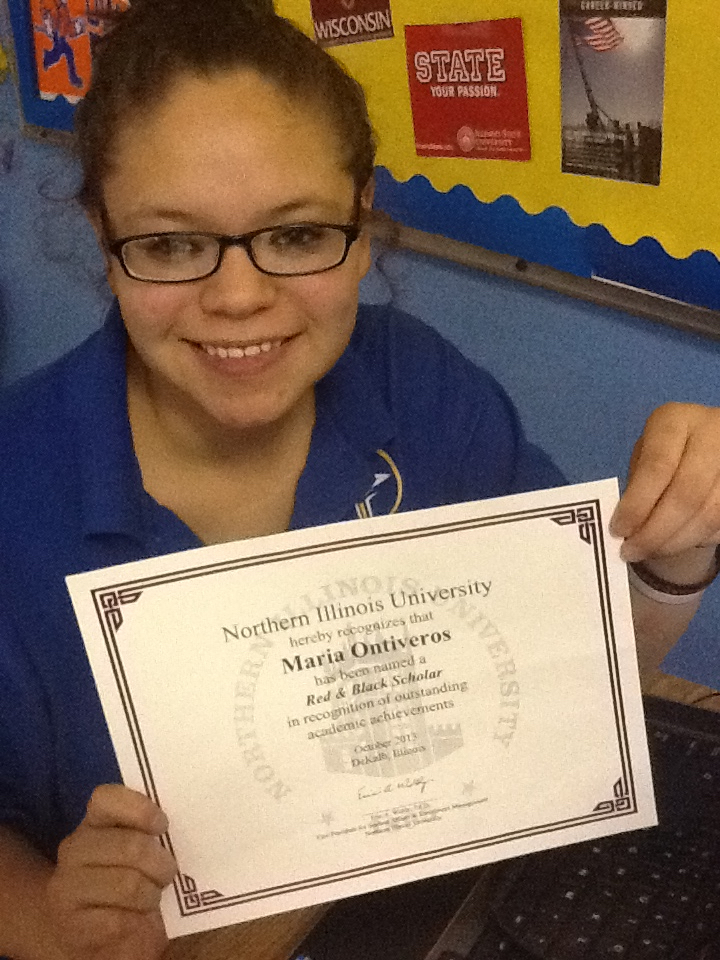During my time as an educator, I worked for five years as the founding college counselor at a Chicago high school, a campus predominantly serving students living in poverty, and students of color. My role involved providing extensive college knowledge and college-going supports to students and their families. Some of the students I have mentored most closely have been my undocumented students. Supporting undocumented students through the college application process and financial aid process requires a specific set of knowledge and skills which most educators remain disconnected from. To bridge this gap, I provided professional development workshops to educate high school counselors and teachers about the options and constraints faced by many of our undocumented students. I also organized preparation workshops to assist students applying for DACA.
As my students matured and entered college, I have maintained a mentoring relationship with many of them, and continue to support them as they pursue advanced degrees.
I am zealous about teaching statistics to students of social sciences and the broader humanities. For the past two years, I have had the opportunity to teach a graduate-level statistics course, Data for Policy Analysis and Management, at The University of Chicago’s School of Social Service Administration. Over the course of a single ten-week quarter, I take my students from beginning descriptive statistics to multinomial regression, using relevant data sets such as: the Latino National Survey, Massachusetts Early Care and Education and School Readiness Survey, Monitoring the Future survey, and Child Protective Services data. Many of my students enter class feeling intimidated or alienated in the world of statistics, and leave with a new-found sense of confidence and competence in quantitative analysis.
I approach crafting confidence and belonging as active processes that must begin from the very first day of class, from the very first exposure to the course material. I start by building a sense of ownership for data, analysis, and results. I do this by presenting examples of individuals or institutions who have misused data or misrepresented results to their own aim. I urge students to think about populations of individuals they have a vested interest in, whether that be from a personal, professional, or political perspective. I then ask students to consider how misusing data or misrepresenting results could negatively impact those individuals.
I strive to develop students who are poised to use data to shape practices and policies within the organizations and communities they engage. As such, class content is inextricably rooted in practice examples. Every class lecture and assignment is specifically designed to foster an understanding of the applicable nature of the statistics, not simply the execution of the statistics. To this end, I incorporate a series of in-class labs where we collectively tackle real world problems using a number of statistical methods. This provides students an opportunity to combine material covered over multiple classes and to witness how concepts can answer one question and inform the next question. In-class labs also provide me with the valuable opportunity to work with students in small groups or one-on-one, giving me a good sense of the strengths and areas of growth for each student.
As a university lecturer and mentor, I believe in bringing personal experiences into the classroom, and work to reflect the multitude of identities and life experiences of my students in classroom lectures and curriculum. I take my role as an educator, mentor, and support system for my students seriously. While I can never reflect the entirety of challenges faced by my students, I believe sharing my personal experiences as a first-generation college student from a low-income family, provides support and validation for many of my students. I strive to create an educational environment that validates individuals as members of the campus community, supports student growth, and challenges us all to leave each term with a more developed skill set and a clearer vision of how we want to grow in the future.

